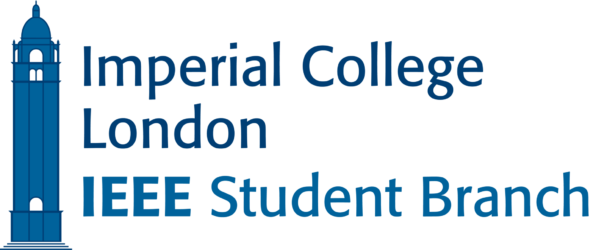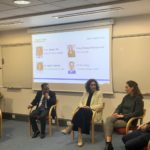It is our pleasure to announce that we have recently formed the IEEE Power & Energy (PES) Student Chapter at Imperial. It is the first IEEE Society on campus and our aim will be to:
Enhance the research experience, professional opportunities, and collaborations for the Power and Energy Community at Imperial College London.
We plan to achieve the above by bringing high-quality technical events and professional opportunities from IEEE and industry, while also promoting diversity and equal opportunities in power and energy engineering.
The founding Committee consists of three doctoral researchers in the CAP Group: Stefan Borozan, Sai Pavan Polisetty, and Malek Alduhaymi, with highly valued support from Dr. Fei Teng as the Academic Advisor.
We are looking to grow our team and are currently welcoming committee members that will lead the organization of events and/ or reach out to and liaise with industry, other universities, and IEEE sections.
Feel free to contact us at imperial-sb@ieee.org if you’re interested or with any questions!
Inaugural Event
We hosted our inaugural event on 25 November 2022. The event attracted the attention of Imperial academics, doctoral and postdoctoral researchers, as well as Master’s students.
First, the mission and objectives of the PES Student Chapter were presented, followed by an address by Prof. Eric Yeatman, Head of EEE Department. He reaffirmed the Department’s commitment to supporting student initiatives and encouraged further IEEE opportunities outreach, at Imperial and beyond.
Then, we held a panel discussion titled 2051: a PES odyssey.
The title hints at the nature of the event – an exploration of the exciting prospects for the power & energy sector with a view toward 2050 and the means of getting there. Moderated by Stefan Borozan, co-chair of the IEEE PES Student Chapter, the panel presented the views of four highly informed speakers:
Prof. Bikash Pal, Professor of Power Systems at Imperial College London, IEEE PES Vice President of Publication and Distinguished Lecturer
Electrification of transportation is going to drive radically the electricity network infrastructure from the evolution of demand. Energy storage (battery and hydrogen) is going to address supply-side challenges. Grid-edge technologies will provide a pathway to this transformation.
Peny Panagiotakopoulou, Senior Manager of Energy market modeling & analysis at National Grid
The world’s actions today will be crucial to create a sustainable energy system. Net zero carbon emissions by 2050 means electricity demand are likely to double. As such a clean energy transition is the surest route to long-term security of supply, energy resilience, and affordability. Consumer behaviour – how we all react to and embrace smart technology, an evolving electricity network and technology innovation will be vital to meeting Net Zero.
Dr Fei Teng, Senior Lecturer at Imperial College London
In the power sector, I think the biggest changes are the massive transition from conventional thermal generators to inverter-based resources and the switching of the load from being passive to being active, which will fundamentally change the way we control, operate and plan the system.
Dr Tala El Samad, Lecturer in Thermo-Fluids for Energy Systems at City, University of London
The role of turbomachinery systems in 2050: with reference to conventional turbine engines that would continue to supply base load in the transition to net zero, the vision seems to be to deploy smaller, operational, and fuel-flexible systems for a distributed generation while improving energy efficiency. Advances in thermodynamic processes, for example in hydrogen combustion, energy storage, and low-carbon heating, will reinforce the shift to distributed resources – the optimal operation of which will be crucial in the future energy sector.
The speakers elaborated on their statements presented above and discussed various challenges and opportunities of the energy transition. They shared their own views and raised interesting questions worthy of further exploration. There was also active participation from the audience, notably from senior academics who contributed to the depth and significance of the discussion.
After the panel discussion, the attendees explored the ideas further and socialised over a celebratory drinks reception. Many of them expressed interest in further IEEE PES events at the College and their support for the Student Chapter.









